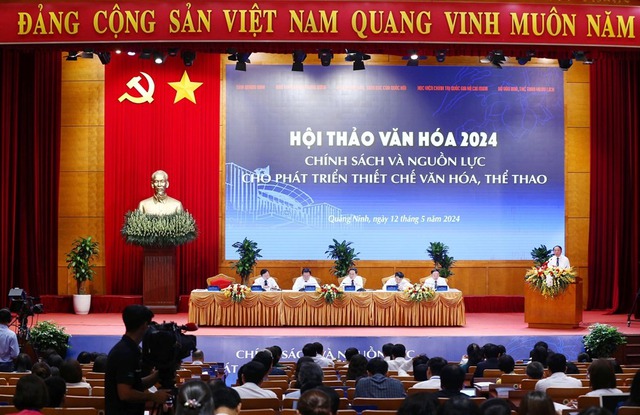
Conference scene
Perception and views on cultural and sports institutions
According to the Minister, approaching from the perspective of state management, the Ministry of Culture, Sports and Tourism is deeply aware that, under the attention of the Party, the National Assembly , the Government, and the Prime Minister, with the shift in thinking from "doing culture" to "state management of culture", since the beginning of the term, the law-making work of the sector has had many changes: Submitted to the National Assembly for approval of the Law on Cinema, Law on Prevention and Control of Domestic Violence (amended); coordinated to advise and submit to the National Assembly for approval of the Law amending and supplementing a number of articles of the Law on Intellectual Property. In particular, since the 2022 Cultural Workshop, performing the tasks assigned by the Party, the National Assembly, and the Government: The Ministry of Culture, Sports and Tourism has coordinated with departments, ministries, branches, and localities to complete the Report proposing investment policies for the National Target Program on Cultural Development (will be reported to the Standing Committee of the National Assembly on May 14); Complete the dossier of the Law on Cultural Heritage (amended) (report to the 7th Session, 15th National Assembly for comments); complete the dossier of the proposal for the project of the Law on Advertising (amended)...
According to the Minister, some contents proposed by the Ministry of Culture, Sports and Tourism at the 2022 Cultural Conference as well as at many forums in recent times have been closely directed by the National Assembly and the Government, although not yet adjusted or supplemented in specialized Laws, but have been approved in principle for pilot implementation, such as the application of PPP investment in the culture and sports sector in the draft Law on the Capital, Resolutions on specific policies and mechanisms for Ho Chi Minh City and a number of new policies for other localities in the coming time. The Government's report on reviewing specific mechanisms and policies for the Regions also mentioned this content. This is really a good signal for the entire culture, sports and tourism sector, opening up new opportunities to attract investment to complete the infrastructure system, institutions and cultural spaces in a synchronous and effective manner, and develop tourism .
Regarding cultural and sports institutions, most recently, on January 18, 2024, the National Assembly's Committee on Culture and Education held a session to explain "Implementation of policies and laws on construction, management and use of cultural and sports institutions in the 2013-2023 period". The Ministry of Culture, Sports and Tourism reported, listened to questions and directly explained at the meeting.
"On that basis, the Ministry of Culture, Sports and Tourism believes that the 2024 Cultural Conference with the theme "Policies and resources for the development of cultural and sports institutions" is both a continuation and an in-depth "slice", explaining issues from theory to practice on policies and resources for the development of cultural and sports institutions" - Minister Nguyen Van Hung clearly stated.
At the workshop, the Minister raised a number of issues that need clarification, including:
First, awareness and views on cultural and sports institutions;
Second, develop cultural and sports institutions from the perspective of policy and resources;
Third, propose some solutions on policies and resources for the development of cultural and sports institutions.
According to the Minister, in terms of awareness and viewpoint, Resolution No. 33-NQ/TW clearly defines the task of "Building, perfecting and improving the quality and efficiency of cultural institutions. Creating conditions for people to proactively organize community cultural activities".
To ensure resources for the cultural sector, Resolution No. 33-NQ/TW also clearly states the solution "Building mechanisms and preferential policies on land, credit, taxes and fees for training facilities and cultural institutions invested by the private sector, especially in disadvantaged areas".
At the 2021 National Cultural Conference, General Secretary Nguyen Phu Trong directed "Building and promulgating appropriate mechanisms and policies, paying attention to the specificity of cultural and artistic activities. Raising investment levels reasonably from the state budget, while at the same time unlocking social resources, domestic and foreign resources for cultural development".
The Vietnam Cultural Development Strategy to 2030 approved by the Prime Minister, the Planning of the Network of Cultural and Sports Facilities for the 2021-2030 period, with a vision to 2045, which the Government will approve in the near future, all show interest and continue to affirm the role of institutions and policies with resources for cultural development, including cultural and sports institutions.
Regarding the development of cultural and sports institutions from the perspective of policy and resources: In recent years, the legal system on cultural and sports institutions has been constantly improved, gradually institutionalizing the Party's policies and guidelines, contributing to improving the effectiveness of state management, specifically:
The legal system on culture and sports currently has 274 legal documents (of which 180 documents are on culture and 94 documents are on sports). Over the past 10 years, 55 legal documents directly and indirectly regulating the construction, management and use of cultural and sports institutions have been issued under authority, showing that the legal system on cultural and sports institutions has basically taken shape.
The name "grassroots cultural and sports institutions" is recorded in Decision No. 2164/QD-TTg dated November 11, 2013 of the Prime Minister approving the Master Plan for the development of the system of grassroots cultural and sports institutions for the period 2013-2020, with a vision to 2030. Including the following subjects: (1) Provincial-level Cultural Centers, District-level Cultural and Sports Centers, Commune-level Cultural and Sports Centers and Village Cultural Houses - Sports Areas (managed by the Department of Culture, Sports and Tourism); (2) District-level Labor Cultural Houses, Labor Cultural Palaces, Provincial-level Labor Cultural Houses, Cultural and Sports Centers in Export Processing Zones, Industrial Parks and in large enterprises (managed by Trade Unions at all levels); (3) District-level Children's Houses, Children's Palaces, Children's Houses or Provincial-level Youth Activity Centers (managed by the Ho Chi Minh Communist Youth Union); (4) The system of grassroots cultural and sports institutions belonging to ministries, branches, organizations and armed forces; cultural and sports institutions invested with socialized capital sources.
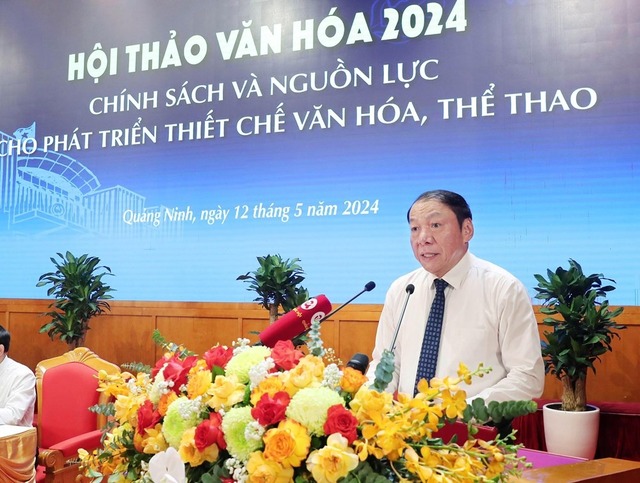
Minister Nguyen Van Hung reports to the center at the Workshop
Step by step improve the quality of operations of the cultural and sports institutions system
In recent years, the system of cultural and sports institutions from the central to grassroots levels has been gradually invested in and consolidated, improving the quality of activities and practical content, contributing to the development of cultural and sports movements to serve political tasks at the local level, while improving the physical strength, stature and spiritual life of the people. By the end of March 2024, the whole country had 66 provincial-level cultural institutions; 689/705 districts had Cultural and Sports Centers or Cultural Houses, reaching a rate of 97%; this rate at the commune level was 77%, at the village level was 76%. The trade union system had 50 cultural and sports institutions. Institutions managed by the Ho Chi Minh Communist Youth Union included 56 Palaces, Children's Houses, Provincial-level Youth Activity Centers, 106 District-level Children's Houses, etc.
The construction, management and use of cultural and sports institutions are subject to the regulation of two groups and legal systems: (1) specialized laws and (2) directly related laws:
Regarding specialized laws: Basically there are Circulars, Decrees, and few Laws (newly there are the Law on Physical Education and Sports, the Law on Cinema, the Law on Cultural Heritage, and the Law on Libraries). These documents mainly stipulate preferential policies, organizational structures, facilities, and operations of cultural and sports institutions.
Regarding the directly impacting related laws: Mainly Laws (nearly 20 Laws), including Decrees and Circulars. These documents mainly regulate policies on subjects, investment, construction, and management. However, the content of these documents basically does not have specific elements of cultural and sports institutions.
According to the Minister, to remove obstacles, bottlenecks, create development resources through policies, effectively exploit and promote the system of cultural and sports institutions, it is necessary to start from institutions and policies, not only through specialized laws but also from related legal documents.
In recent times, along with strengthening the construction and completion of the specialized legal system, including regulations on cultural and sports institutions, the Ministry of Culture, Sports and Tourism has focused on reviewing and coordinating with relevant ministries, branches and localities to propose and recommend competent authorities to amend and supplement a number of related laws that directly impact the construction, management and use of cultural and sports institutions: PPP Law, Law on Management and Use of Public Assets, Law on Corporate Income Tax, etc.
Proposing some solutions on policies and resources for the development of cultural and sports institutions
Minister Nguyen Van Hung stated that, based on the Party's policies and viewpoints and the State's laws, closely following and thoroughly studying practical issues, ensuring timely resolution of newly arising issues; issues that are clear, tested in practice, and have achieved high consensus, then build and promulgate laws for unified application, especially for issues that are being regulated by sub-law documents, issues related to the Party's new policies and viewpoints on the development of Vietnamese culture and people, issues that are inconsistent with practice and other issues that have not been institutionalized, accordingly there are 4 groups of policies that need attention:
Policy on planning, land, investment, construction (infrastructure policy): Currently, the Ministry of Culture, Sports and Tourism has completed the dossier and submitted it to the Prime Minister for consideration and approval of the Cultural and Sports Facilities Network Planning for the 2021-2030 period, with a vision to 2045. The Ministry of Culture, Sports and Tourism will closely coordinate with ministries, branches and localities to promptly and effectively implement this Planning.
The Minister requested that provinces/cities directly under the Central Government continue to integrate planning for cultural and sports institutions in the planning work, adjust provincial planning, arrange land funds for these institutions in suitable locations; prioritize land funds for institutional development in residential areas, urban areas, apartment buildings...
Minister Nguyen Van Hung suggested that the National Assembly, the Government, the National Assembly Committees, ministries and branches continue to pay attention to the cultural sector in the process of reviewing, researching and proposing to perfect investment incentive policies, policies on tax, credit, land, financial mechanisms, and mechanisms to encourage creativity in specialized laws to create conditions to mobilize maximum resources for cultural development such as.
Policy on management, exploitation, and operation (specialized and related policies): Research, amend, supplement, and perfect legal policies on incentives for cultural enjoyment, cultural environment, promotion, support for cultural and artistic creation, sports development, creating a legal basis; specialized policies to guide the management, exploitation, and operation of cultural and sports institutions; policies to support and participate in the community in the exploitation and operation of cultural and sports institutions at the grassroots level in accordance with the practical conditions of localities.
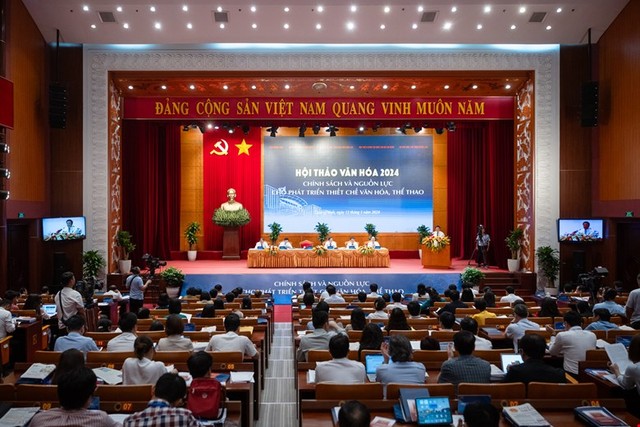
Conference scene
The Minister proposed to develop legal policies on management and use of public assets for cultural and sports infrastructure assets of special nature; amend and supplement the law on financial autonomy of public service units, and perfect regulations on public service services using the state budget to ensure consistency and suitability with reality.
Build, select and disseminate effective models of cultural and sports institutional organization and activities suitable to regions, localities, ethnic groups and subjects.
Regarding the Policy on resource mobilization, the Minister proposed that the National Assembly review, comment and approve the investment policy for the National Target Program on Cultural Development for the 2025-2035 period.
Add the cultural sector to the group of preferential investment industries and sectors eligible for investment under the PPP method when amending and supplementing the Investment Law and the PPP Law.
Supplementing the deductible expenses for cultural and sports sponsorship when determining taxable income when amending and supplementing the Law on Corporate Income Tax.
Supplement policies and regulations in the Law on Management and Use of Public Assets, to promote and effectively use infrastructure assets, cultural institutions, and specific cultural assets.
For localities, the Minister suggested: Clearly define the criteria for projects on cultural and sports institutions in accordance with the Planning that the State prioritizes investment in order to allocate funds, avoiding scattered investment. Classify in detail the types of cultural and sports institution projects that are capable of attracting social resources. Arrange sufficient budget to build, repair, and upgrade cultural and sports institutions, support the operating costs of grassroots cultural and sports institutions to meet the needs of the people.
Policy on training and fostering human resources: Continue to improve regulations on specialized and specialized training sectors and occupations in the field of art. Research and amend policies on treatment and fostering for cadres, civil servants and employees working at cultural and sports institutions; preferential treatment in training and fostering talented cores in culture and sports; promote the role of localities and establishments in creating human resources for management, operation and promotion of cultural and sports institutions.
"Using legal policy tools to unblock and mobilize resources for the development of cultural and sports institutions is an experience that many developed countries have carried out, and is also a prerequisite to create momentum for cultural and sports development," Minister Nguyen Van Hung affirmed./.
Source: https://toquoc.vn/bo-truong-nguyen-van-hung-khoi-thong-huy-dong-nguon-luc-cho-phat-trien-thiet-che-van-hoa-the-thao-2024051211004872.htm


![[Photo] Hanoi morning of October 1: Prolonged flooding, people wade to work](https://vphoto.vietnam.vn/thumb/1200x675/vietnam/resource/IMAGE/2025/10/1/189be28938e3493fa26b2938efa2059e)
![[Photo] Keep your warehouse safe in all situations](https://vphoto.vietnam.vn/thumb/1200x675/vietnam/resource/IMAGE/2025/10/1/3eb4eceafe68497989865e7faa4e4d0e)


![[Photo] President of the Cuban National Assembly visits President Ho Chi Minh's Mausoleum](https://vphoto.vietnam.vn/thumb/1200x675/vietnam/resource/IMAGE/2025/10/1/39f1142310fc4dae9e3de4fcc9ac2ed0)



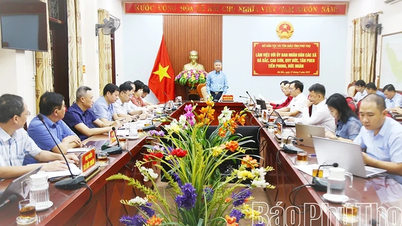

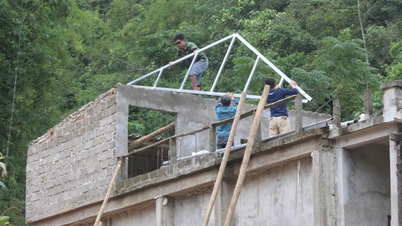
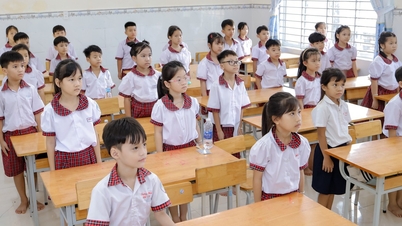





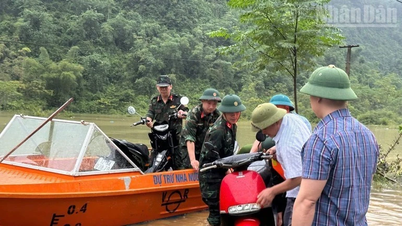

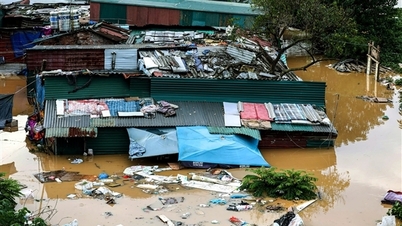

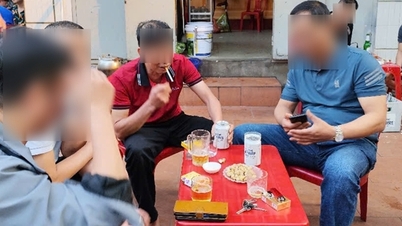
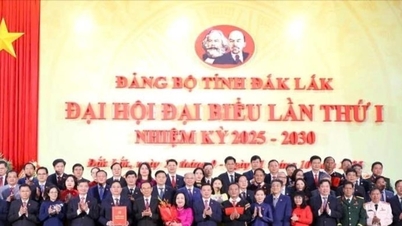

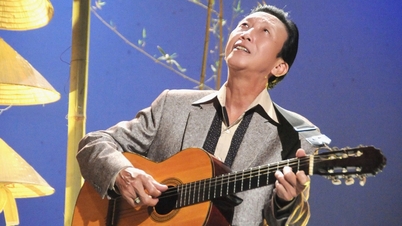
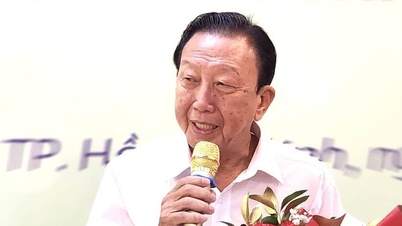






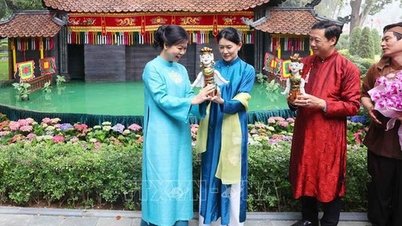
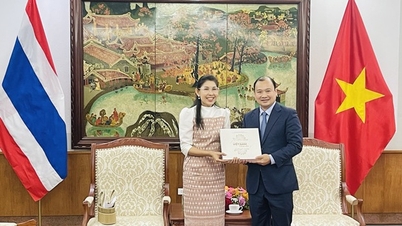
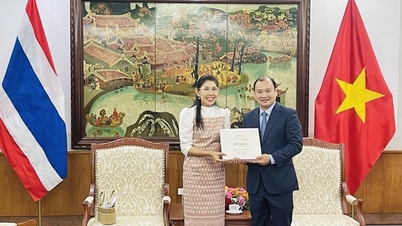

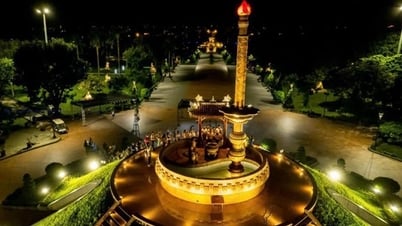































































Comment (0)